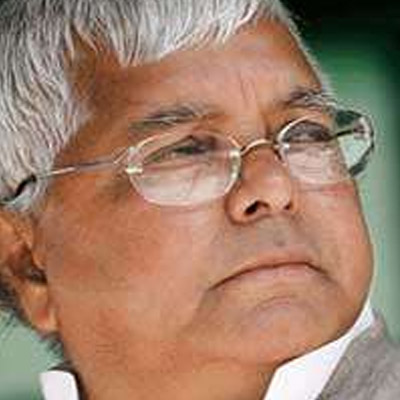Butchered in Bihar: A View from the Outside
After being decimated in Delhi and fallen short in Kashmir, the BJP has now been butchered in Bihar. Maybe a mauling awaits it in the coming Maharashtra civic polls. The question I want to raise here is very simple: what does this election tell us about the Indian polity?

The first thing the political pundits will want to do is to apportion blame. People will point their fingers at the RSS and its chief, at Amit Shah and at the General Secretaries of the BJP for their failure. For example, some will undoubtedly blame Mohan Bhagwat’s statement about reservations.
Actually, I think the problem is the other way around: had the BJP taken a healthy attitude towards Indian society, it would not shoot at him for pointing at the general interest of this society. In fact, he was touching the pulse of Indian society regarding reservations. The movement of the Gujjars and the Patels is not the mere rumbling of a semi-active volcano, but a warning that it is going to explode.
The BJP and the Sangh Parivar are trying to build a wooden house at the foot of the volcano, trying to outdo the matchstick houses built by other parties in the same area. When the lava spews forth, they will all burn.
Second, the Bihar elections appear to presage things to come. A war of all against one, bellum omnium contra unum, to speak Hobbes: BJP and fringe parties arraigned against the rest.
If it wants to survive at all, the BJP will need to begin distinguishing itself from all other parties on the basis of a national programme that does not include banning beef, rewriting NCERT textbooks, and introducing Vedic astrology or Vedic mathematics into the classroom.
[contextly_sidebar id=”5l9tXzl5ukV83KZExrQHysw5NZGUFpS2″]
It would be well-advised to formulate policies that go beyond narrow sectional and regional interests. Democracy cannot cater to anything less than the general interest of society. Only this way would it be able to distinguish itself from others; the Bihar elections show that playing sectional interests will decimate the BJP. Will that lesson be learnt? Possible but unlikely.
Today, the Congress has become a regional party and has no hopes of becoming the national party that it once was. Indira Gandhi’s strategy to use the interests of the so-called minority groups to fight her political rivals has taken the sad form of societal truth today: freebies and appeasements should overpopulate the political agenda and programmes of every party in India.
While the general election of last year indicated the possibility of transcending petty sectional interests, all political parties drew the opposite lesson. Their strategies got back to appeasing all kinds of groups in the name of ‘social’ justice, while not knowing what the word even means. Obviously, in India, corruption and bribery of groups are collectively termed ‘social justice’.
Third, consider the extent to which the BJP stalwarts believe their own spin doctors and PR stories. They truly think that talk of ‘development’ is what brought Modi to power. Kashmir, Delhi and now Bihar show that this silly idea cuts no ice.
The Vajpayee government tried to build a golden corridor and ‘develop’ the infrastructure of India but the nation merely gave it an exit into an alley. That is where the current government is also headed. The BJP and Modi won because they told a story to the Indian people that shared a dream, gave some hope and sounded rather pretty. Having begun to talk like a bureaucrat now, Modi’s ‘development’ mantra appears to be fast losing resonance. Wherever I have travelled in India, there I have heard the same story: he will get one more year and if he does not change…
Fourth, the Bihar election points to the tragedy facing India. Increasingly self-centred regional groups are coming to power, slicing the national pie to line their own pockets. They cannot fill them, because the exchequer is almost empty.

Having never known statecraft, the Niteshs, Laloos, and Manmohan Singhs of India are running the country like an NGO. They think that silly welfare programmes will win them the votes required line their pockets further. The lesson that democracy should always subordinate particular interests, even of the majority, to the general interests of society was never learnt in India.
Unless this changes, the current generation of India’s youth will pay such a heavy price in the next two decades that all the ‘Make in India’ stories will sound like cruel jokes.
At the level of education alone, India is poised in ten-years time to reach where black Africa was in the 1960s. For instance, during the recent Visitors Conference in Delhi, the President parroted pitiful inanities: fund the IITs and the IISc to get world-class research. Japan threw money but did not generate world-class research; China is not emerging as a giant because it is throwing money at research.
Perhaps the worst lesson of the outcome of the Bihar election is that India is poised to become the backward Bihar. People voted with their feet, because the direction they are hurtling towards is known: an abyss.

